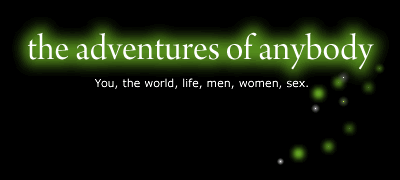In the United States of America, suicide is the second leading cause of death for all college students (as of 2001 and according to suicide.org). And more people actually die from suicide than homicide.
In general, there is a noticeable contrast between western developed countries where our modern matrix is at its most advanced state (higher suicide rate) and the less developed countries in South America or the Pacific (significantly lower). There is only reliable data for a few 3rd world countries.
Statistics on clinical depression reflect a similar pattern to the above described.
It may be too simplistic to interpret these broad statistics (and to do so is not within my scope here), but to dissociate it from mentality and lifestyle differences is unthinkable.
From The Wall Street Journal, excerpts from the March 9, 2007 article “The Great Depression – Richest country, saddest people, any coincidence?”
…recently reported in Forbes, purporting to show that the U.S. has the highest rate of depression among a survey group of 14 countries. The study, jointly conducted by the World Health Organization and Harvard Medical School and based on more than 60,000 face-to-face interviews world-wide, found that 9.6% of Americans suffer from “bipolar disorder, major depressive disorder or chronic minor depression.” A whopping 18.2% of Americans were also found to be experiencing “mood and anxiety disorders, such as obsessive compulsive disorder and panic disorder.”
…
One can easily understand that Ukraine, land of Chernobyl, would have a comparatively high proportion of depressed people: 9.1%. One can equally understand that the rate of depression in Italy comes in at a low 3.8%. The only mystery there is how anyone could be depressed in Italy.
…
More interesting are the data about depression rates in poorer countries. In Lebanon, which in the last year has endured heavy Israeli bombardment, an internal refugee crisis, several political assassinations and a quasi-coup by Hezbollah, 6.6% of the population is considered to be depressed, a slightly higher figure than Belgium’s (6.2%) but considerably lower than France’s (8.5%). Colombians, with their drug cartels and right- and left-wing death squads, remain, at 6.8%, a slightly cheerier people than the prosperous, permissive Dutch (6.9%). And while some 50 million Mexicans live below the poverty line, they are, at 4.8%, doing twice as well at keeping their spirits up than their richer neighbours to the north.
And then there is Nigeria: desperately poor, infamously corrupt, riven by violent confessional and tribal divides, and generally filthy. It clocked in with a depression rate of 0.8%, by far the lowest of all the countries surveyed.
Could it really be that Nigerians are the happiest people on earth, and Americans the most unhappy?
…
A New York attorney who fails to make partner at a white-shoe firm by his mid-30s may find himself “depressed.” By contrast, a fruit seller in Lagos, Nigeria, who makes enough in a year to feed and clothe her family may be fairly contented.
…
None of this is to say that depression is not, for those who suffer acutely from it, a serious matter or that it doesn’t warrant attention and care. But it is also true that what we now call “depression” is something previous generations also knew, albeit with different names: melancholy, unhappiness, “the blues.” In song, in church, in labor, in philosophy and in the bonds of family, community and tradition they were often able to find genuine consolations.
Such consolations still exist, though we no longer think of them as cures. Given how badly our own “cures” seem to be working, perhaps it would be well if we did.
Bret Stephens

